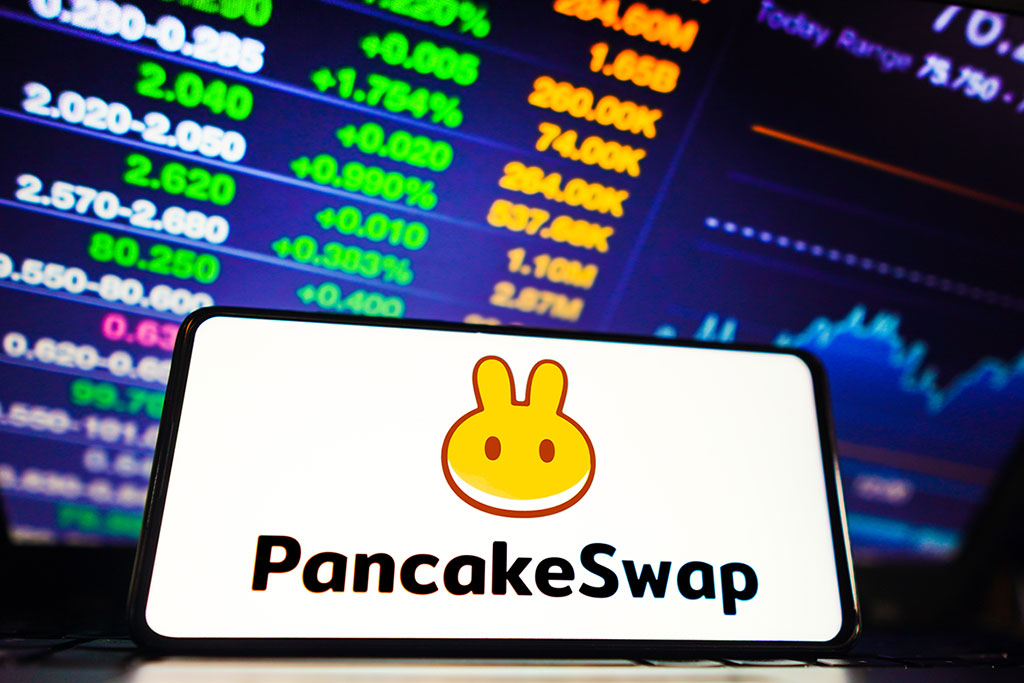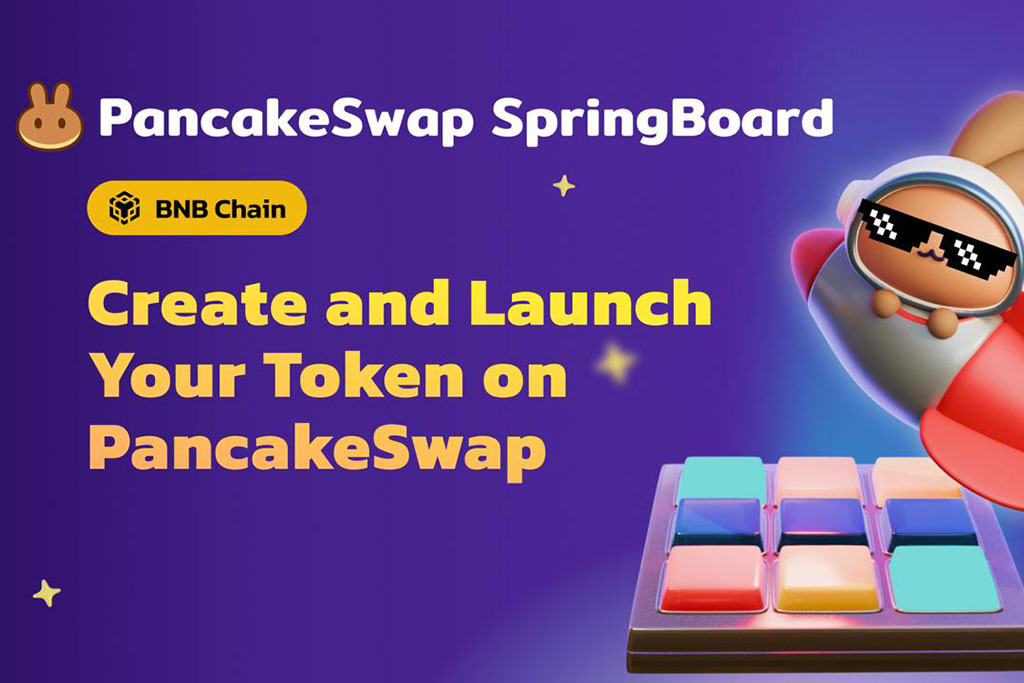
PancakeSwap Price: CAKE Surges 100% as BNB Ecosystem Gains Momentum
PancakeSwap (CAKE) has experienced a remarkable surge of over 100% in the past week, riding on the broader recovery of the BNB ecosystem.


1H
-0.62%$0.0115
24H
-1.00%$0.0186
7D
6.17%$0.1069
30D
2.58%$0.0463

PancakeSwap (CAKE) has experienced a remarkable surge of over 100% in the past week, riding on the broader recovery of the BNB ecosystem.

PancakeSwap has now burnt a total of 8.9 million CAKE as it looks to enhance ecosystem valuation.

PancakeSwap closes 2024 with unprecedented $310 billion trading volume, showcasing massive growth through Layer-2 networks like Arbitrum and Base, while introducing innovative features like SpringBoard.

PancakeSwap unveiled its SpringBoard platform, enabling seamless token creation on BNB Chain without coding expertise.

The PancakeSwap MEV guard will protect users from unfair prices and enhance trading security on the BNB chain.
PancakeSwap is an automated market maker (AMM) – a decentralized finance (DeFi) application that allows users to exchange tokens, providing liquidity via farming and earning fees in return.
It launched in September 2020 and is a decentralized exchange for swapping BEP20 tokens on Binance Smart Chain. PancakeSwap uses an automated market maker model where users trade against a liquidity pool. These pools are filled by users who deposit their funds into the pool and receive liquidity provider (LP) tokens in return.
These tokens can later be used to reclaim their share of the pool, as well as a portion of the trading fees. These LP tokens are known as FLIP. PancakeSwap also allows users to farm additional tokens such as CAKE and SYRUP. On the farm, users can deposit LP tokens and get rewarded with CAKE.
PancakeSwap allows users to trade BEP20 tokens, provide liquidity to the exchange and earn fees, stake LP tokens to earn CAKE, stake CAKE to earn more CAKE and stake CAKE to earn tokens of other projects.
Delisting of shares can be voluntary or involuntary and usually comes when a company ceases operations, declares bankruptcy, merges, does not meet listing requirements, or seeks to become private. Here, we will discuss why a stock might be delisted and what happens once it is removed from an exchange.

The Interledger protocol (ITL) is a protocol for payments across payment systems. The protocol was introduced by Ripple in October 2015.
